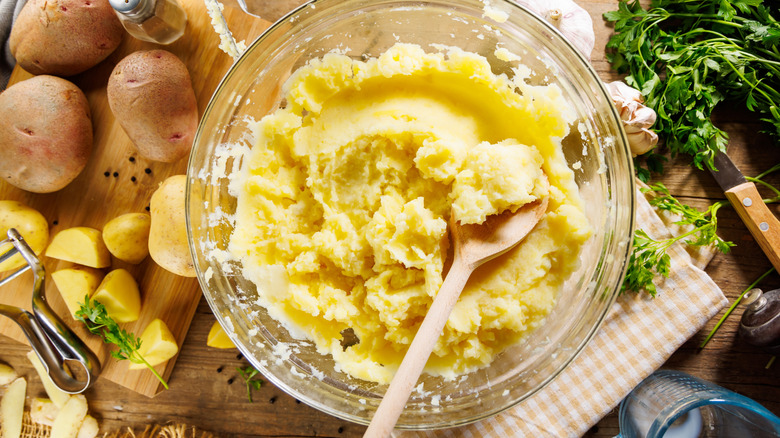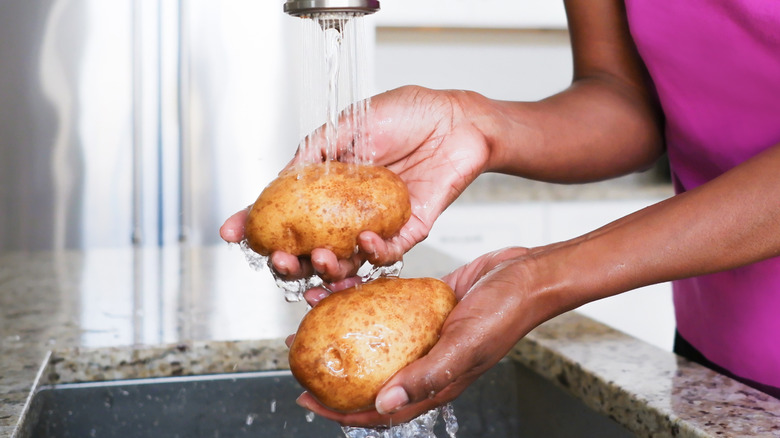Avoid Gluey Mashed Potatoes With One Simple Step
If there's one way to get an argument started, it's by asking people how to make the best mashed potatoes. Everyone's got their own opinions on what makes a good mash. Do you like them creamy, or ultra fluffy and cloud-like? Do you prefer some rustic potato chunks in every bite, or do you like pushing everything through a strainer a few times for a silky-smooth texture? I'm a starch-loving kinda guy, so you could put any mashed potato dish in front of me and I'd happily eat it. You don't need to use chef-approved tips for making mashed potatoes to impress me. But there is one thing I don't like to see in my mashed potatoes, and that's a glue-like texture. Fortunately, it's not hard to avoid turning your mashed potatoes into glue. You just need to know a little bit about science.
The thing turning your mashed potatoes into a new addition to the Elmer's product line is the starch. Potatoes are a starchy root vegetable, and starchier potatoes are actually better to use in mash for a fluffy result. Russets, for example, are a classic mashing potato, and they have a high starch content. So how do you avoid the glue debacle if you're already working at a slight disadvantage? Simple: You just wash that starch right down the drain.
Wash your potatoes the right way to remove excess starch
Even if you just give your potatoes a quick rinse, you'll be faring better than a person who doesn't wash theirs at all. But there are still some things to keep in mind when giving your potatoes a bath so you can really cut down on the starch that makes it into the cooking pot.
First, it's the frequency. You always need to wash fresh produce before peeling, so rinse the tubers before you get started even though you aren't keeping the skins on. After all, when you peel your potatoes, that peeler is raking everything it touches across the bare flesh of your spud. You'll also want to wash them twice: Once before cooking, and once again after.
You don't have to give these potatoes a thorough soaking, either. Just a rinse will do. On the first pass, use cool water to get rid of the surface starch. When you do your second rinse after cooking, use hot water, which helps suck some of the remaining starch out of your potato. I suggest sticking your potatoes in a colander so you can let the water run over it freely and carry any starch right out the bottom. With that, dump your cooked taters into a fresh bowl and carry on with your usual mashed potatoes recipe. It's a small step, but it will make a big, glue-free difference.

